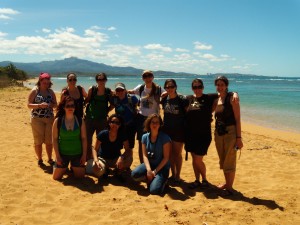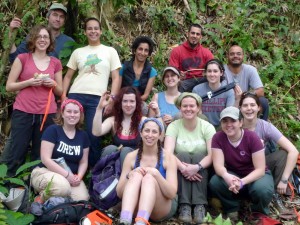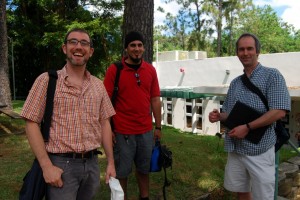Course Overview
Place-based Landscape Analysis is a course designed to give graduate students involved in field science and ecological planning the opportunity to learn a variety of natural resource inventory and ecological assessment methodologies while participating in real-world community conservation projects. The NR 378 framework provides an opportunity for participants to explore multifaceted environmental issues with guidance from a diversity of mentors, including social scientists, natural scientists, environmental professionals, and community members. The place-based landscape analysis approach, in turn, provides a holistic framework for investigating the relationship between humans and the land. By rooting our integrative analyses in specific places (which for the purposes of this course are defined as geographic contexts where nature and culture intertwine and unfold through time), we have the opportunity to examine environmental issues from a systems perspective. Thinking in systems helps us understand both the complexity and the reality of the interdependence of the ecological systems and social systems that make up a place, and has the potential to provide valuable insights into how we might inhabit our places in ways that are just and sustainable.
This year’s course focused on a comparative place-based landscape analysis between Vermont and Puerto Rico. On the Vermont end, the course centered on Jericho Research Forest, home of UVM’s Green Forestry Education Initiative. This 500-acre property serves as a landscape for “demonstrating a new niche for forestry and forest conservation education that emphasizes the integration of sustainable design, land ethics, and real-world learning” (www.uvm.edu/rsenr/greenforestry).
The centerpiece of the course was a 10-day trip to Puerto Rico during the period of March 3-12 (UVM’s spring break). In Puerto Rico, our studies canvased several distinct landscapes and projects, leveraged through a partnership with faculty from the University of Puerto Rico-Rio Piedras Campus, in addition to a diversity of professionals from several island based public, private, and non-profit agencies. A significant portion of the course’s attention was focused on El Yunque National Forest and its associated watersheds in the Luquillo Mountains, together with investigations into forested landscapes in the Central Cordillera, and Cayey Mountains.
In our comparative analysis of temperate and tropical forested ecosystems in Vermont and Puerto Rico, our intention was to utilize an approach that is both holistic and integrative; holistic in that we viewed the forest and its values from multiple perspectives and integrative in that we focused on the relationships among these points of view. Though the forest values advocated from different epistemological angles may sometimes be conflicting, our intention was to look for complementarity and common ground.
The over-arching question the course we aimed to address is as follows: How do we integrate the socioeconomic and environmental values of forested landscapes? With the forest as our focal hub, we will examine the role of this landscape from six principal, yet non-discrete, points of view:
- Biodiversity
- Community
- Economy
- Ecosystem Services
- Education
- Research
Our Class
Ten female UVM graduate students were enrolled in the spring 2011 NR378 Place-Based Landscape Analysis course: five candidates for a master’s in natural resource management, two in the Ecological Planning program, and three in the Field Naturalist program. The instructor of the course was Walter Poleman, UVM Senior Lecturer and Director of the Greenhouse Residential Learning Community. The main point of contact in Puerto Rico was Chris Nytch, 2007 graduate of the Field Naturalist Program and current Research Manager with the Institute for Tropical Ecosystem Studies at the University of Puerto Rico.


